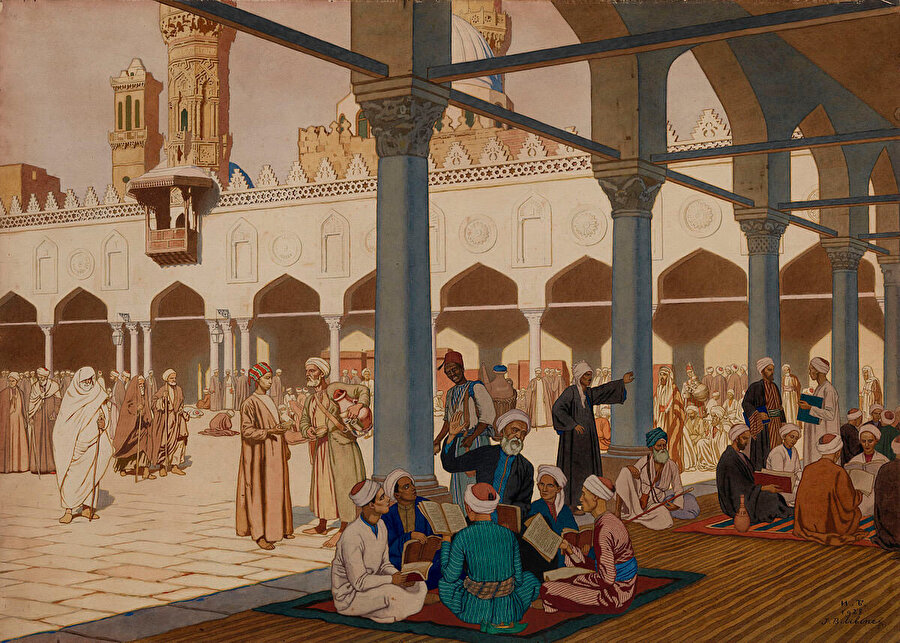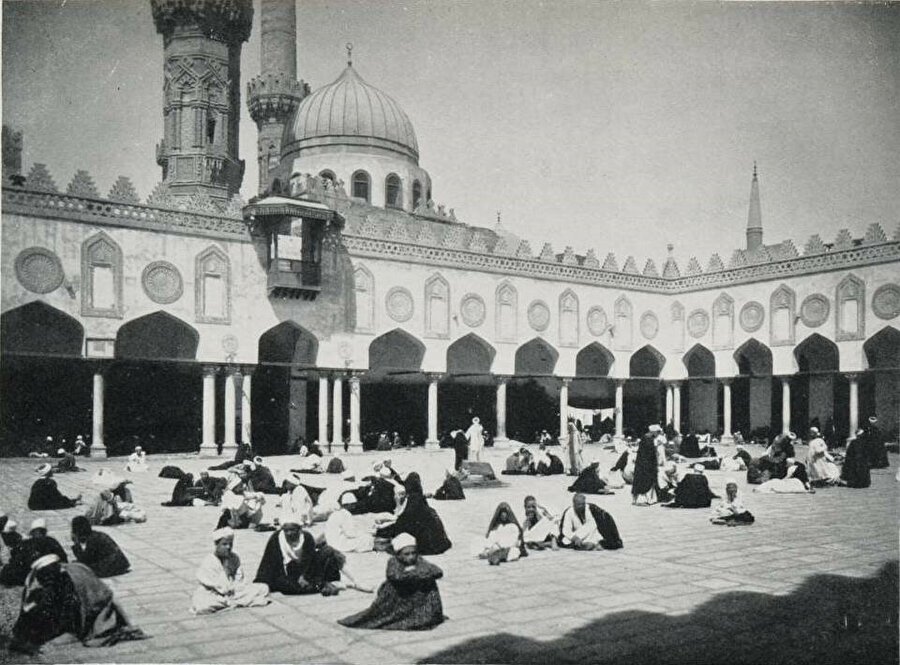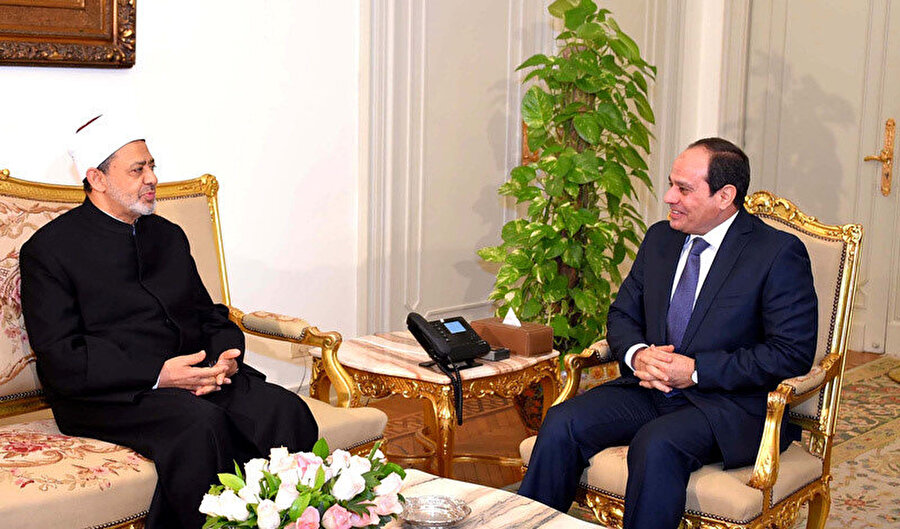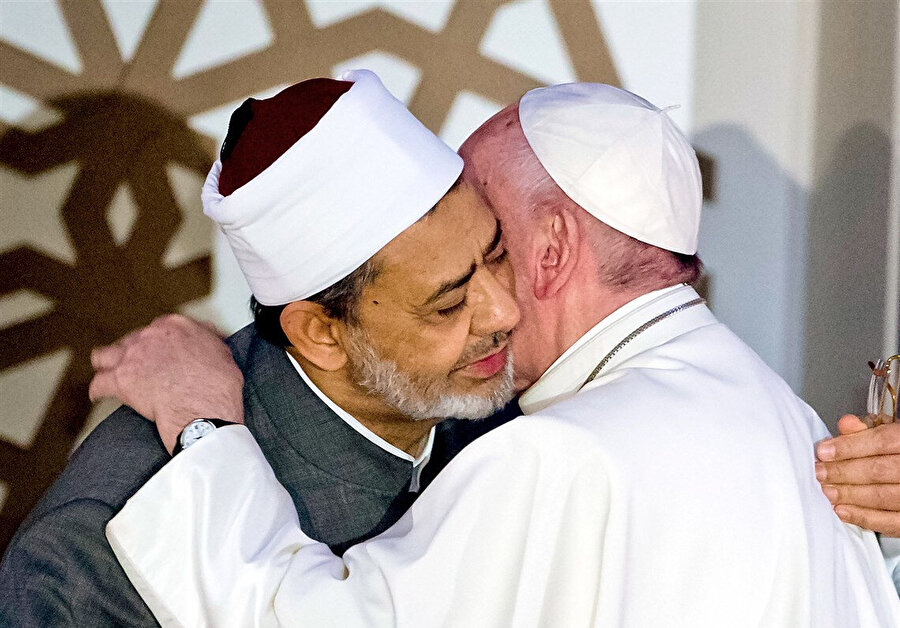
Al-Azhar – a religious institution in the political arena
Al-Azhar, being both a religious and a political symbol, has been one of the most influential institutions not only in Egypt, but in the entire Middle East since its inception, Ramadan Udundzhu writes.
Construction of the Al-Azhar complexbegan during the reign of the Fatimid dynasty on the orders of the Caliph al-Muizza Lidini-Llah as a Friday mosque in 972 or 975. His task was to promote the spread of Shiite doctrine. With the support of both waqfs and the state, al-Azhar eventually gained great importance. Under the Ayyubids, who restored Sunnism as an official religious trend in Egypt, given the previous direction of al-Azhar’s activities, they tried to deprive this institution of influence. It prohibited Friday prayer, which was resumed there only under Sultan Baybars I. Having regained the status of “Friday mosque”, al-Azhar also regained its religious and social significance. Important announcements were made here, for example, the Nile spill,

Source: gzt.com
The largest legacy received by al-Azhar from the Ottoman period, which began after the conquest of Egypt by Sultan Selim I in 1517, concerned the fact that the choice of the head of this institution – Sheikh al-Azhar – was made the prerogative not of the authorities, but of the local ulema. During the French occupation, it was al-Azhar’s ulama who led the resistance to the conquerors, for which many of them paid with their lives, and the institution itself was closed for some time.

Source: gzt.com
In recent history, the political role of al-Azhar has only increased. Under President Gamal Abdel Nasser in 1961, along with the Faculties of Philology and Religion, the Faculties of Engineering, Medicine and Agriculture were established at the University. In addition, the post of Minister for Al-Azhar, appointed by the President, was established. This is how the religious and political significance of al-Azhar received official recognition.

Source: gzt.com
During the Arab Spring processes that affected Egypt, Ahmad at-Tayyib, who in 2010 called the post of Sheikh al-Azhar, addressing the people of Egypt, said that protests against Hosni Mubarak , who is the ruler of Muslims (waliyu al-amr), are illegal … Despite this, President Mursi subsequently retained his post.

Source: gzt.com
In 2013, Ahmad al-Tayyib supported a coup d’état organized by General al-Sisi. In his speech, he stated that there are two ways to prevent a civil war, and support for early elections, which he sees as the best option in the current situation, is mandatory (wajib) from the point of view of Islam. Despite the fact that many of al-Azhar’s ulama did not approve of the coup and even accused the sheikh of treason, al-Tayyip al-Sisi’s support played an important role in recognizing the legitimacy of the new government.

Source: gzt.com
As part of the Global Conference on Human Brotherhood, organized in Abu Dhabi, to which religious and community leaders from all over the world were invited, Ahmad at-Tayyib met with Pope Francis. He also gave a speech in which he called on Muslims to embrace Christians in the area where they live, and appealed to Muslims in Europe, encouraging them to keep up with the societies in which they live.

Source: gzt.com
It is obvious that Egypt and the UAE, two important partners of the military-political alliance that are trying to create in the Middle East with the participation of Saudi Arabia, Bahrain and Libya, want to effectively use the religious factor, which is one of the most important in the region. But I would like the religious leaders not to forget that they represent not only themselves, but also such institutions as al-Azhar, which for centuries enjoyed the unconditional trust of Muslims.
Islamosphere

